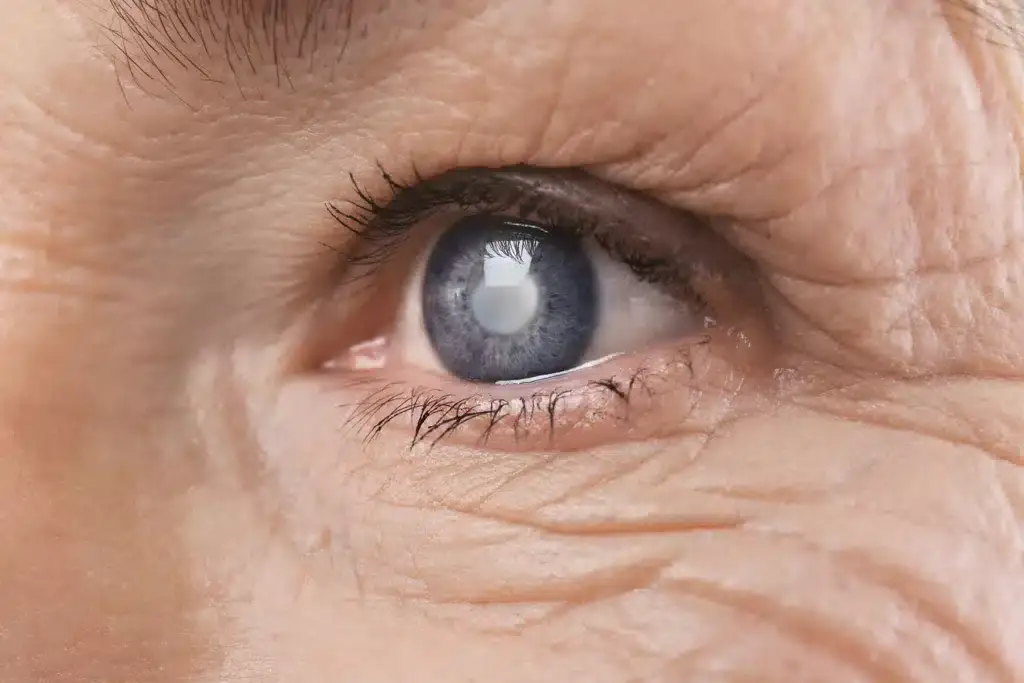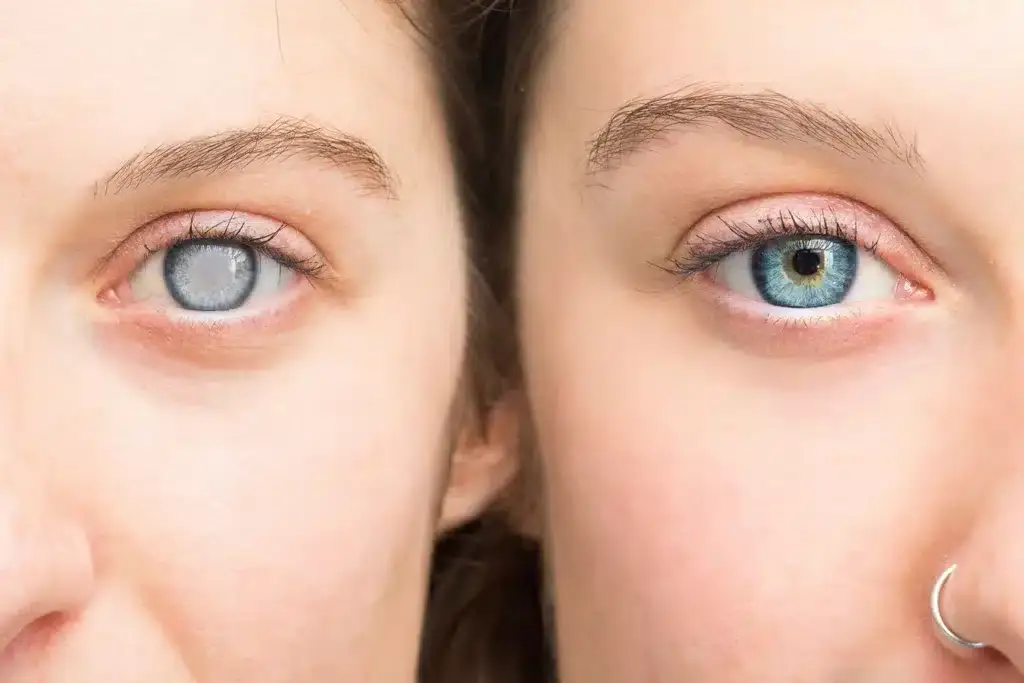Eye Conditions
Sustain quality of life
Unfortunately, there are a number of conditions that can limit our ability to see clearly, potentially effecting our overall health.
Eye Conditions

Diabetes
If you have diabetes, you probably know your body can’t use or store sugar properly. When your blood sugar gets too high, it can damage the blood vessels in your eyes, which is why an annual comprehensive eye exam is essential. This damage may lead to diabetic retinopathy. In fact, the longer someone has diabetes, the more likely they are to have retinopathy (damage to the retina).
People with diabetes are 25 times more likely to lose vision than those who are not diabetic, according to the American Academy of Ophthalmology.

Cataracts
Cataracts are one of the primary eye diseases that optometrists look for during an annual comprehensive eye exam. A cataract is a clouding of the eye’s natural lens, which lies behind the iris and the pupil. The lens works like a camera lens, focusing light onto the retina at the back of the eye. The lens also adjusts the eye’s focus, letting us see things clearly up close and far away.
Most cataracts occur gradually as we age and don’t become bothersome until after age 55. However, cataracts can also be present at birth (congenital cataracts) or occur at any age as the result of an injury to the eye (traumatic cataracts). Diseases such as diabetes or the long-term use of certain medications, such as steroids, can also cause cataracts.

Macular Degeneration
Macular Degeneration (AMD, ARMD, or age-related macular degeneration) is an age-related condition in which the most sensitive part of the retina, called the macula, starts to break down and lose its ability to create clear, visual images. The macula is responsible for central vision – the part of our sight we use to read, drive and recognize faces. So although a person’s peripheral vision is left unaffected by macular degeneration, the most important aspect of vision is lost.
Macular degeneration usually produces a slow, painless loss of vision. Early signs of vision loss associated with macular degeneration include seeing shadowy areas in your central vision or experiencing unusually fuzzy or distracted vision. In rare cases, macular degeneration may cause a sudden loss of central vision.

Glaucoma
Glaucoma occurs when the pressure in the eye becomes higher than usual. The buildup of internal eye pressure can press against the optic nerve and damage it. The progressive decay of the optic nerve causes a gradual loss of peripheral vision first, followed by a reduction in central vision and possible blindness. Usually, there are few to no symptoms in most forms of glaucoma, so a yearly eye exam needs to check for the disease.
We rely on our eyes for everything.
Almost all the information that we use for our daily lives is transmitted to our brains through vision. Just close your eyes and imagine living without your vision. It seems complicated, right? So act early and get your annual eye exam today.
